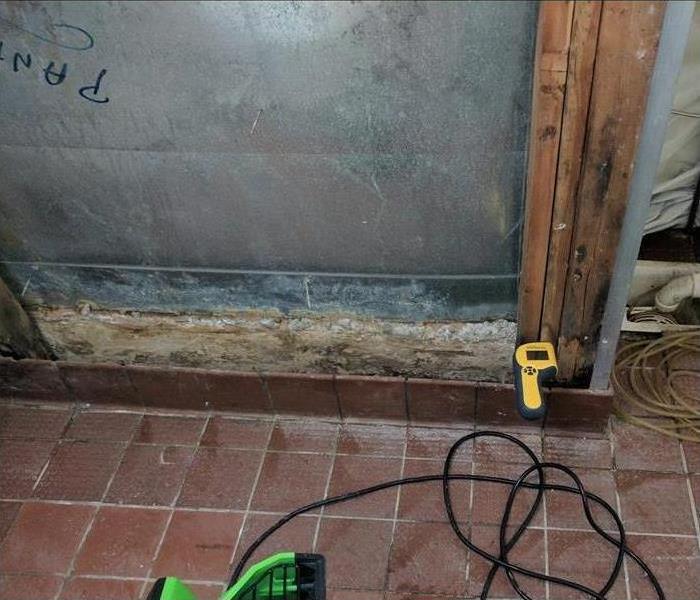3 Top Places Mold May Be Hiding in Your Home
1/25/2022 (Permalink)
Mold Could Be Hiding in These 3 Places in Your Home
While finding mold growth in your West Orange, NJ, home can be distressing, you usually have options for cleaning it in a way that prevents it from returning. However, when mold starts to develop in places you cannot see, it can grow into a serious infestation before you notice its presence. If you want to kill mold in your home before it takes hold, it is wise to check out a few locations where it commonly hides.
1. Behind Drywall
Even small leaks, such as those that might seep from your refrigerator’s water line if it includes an automatic ice maker, can encourage mold growth in nearby walls. Drywall can be particularly affected because it is porous and absorbs water. Once moldy drywall and insulation develop, they must be torn out and replaced to prevent further growth from occurring.
2. Under Kitchen and Bathroom Cabinets
Mold requires moisture and humidity to grow and spread. This makes the areas under your bathroom and kitchen cabinets vulnerable, especially in far corners that can be difficult to see. It is a good idea to check these spaces often, especially in humid weather, and leave the cabinet doors open for a few hours a day so the wood and other building materials inside can breathe.
3. In the Basement
Your home’s basement makes a perfect hiding space for mold growth, especially if it tends to be damp all year round. Mold spores do not require sunlight to grow or spread, so spores that detach when you move stored belongings around can travel through your home’s air ducts and attach to wood and drywall in other parts of the house. Since mold on wood can be difficult to remove once it takes hold, consider calling in a mold removal and remediation service to inspect your home if you suspect a problem in your basement.
Hidden mold growth in your West Orange, NJ, home can be disastrous if it is not caught in time. Checking potential hiding spots often is one way to avoid this issue and to prevent future infestations.




 24/7 Emergency Service
24/7 Emergency Service
